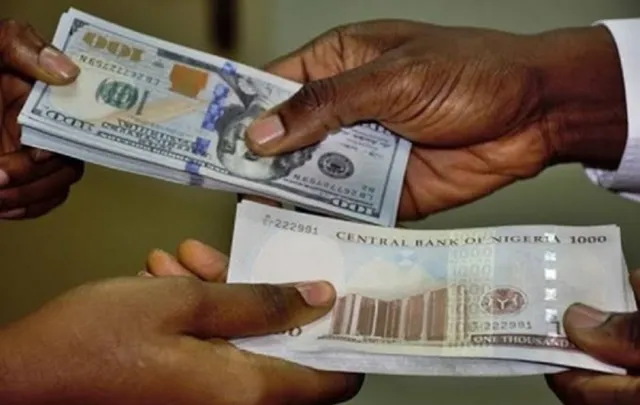The Federal Government pulled off a major strategic liquidity buffer with the provision of a standby $3 billion in advance royalties and taxes by the Nigerian National Petroleum Company Limited (NNPCL).
The NNPCL yesterday signed a conclusive agreement with the African Export-Import Bank (Afreximbank) for an emergency $3 billion crude oil repayment loan, which enables NNPCL to provide the Nigerian government with upfront payments of royalties and taxes while the national oil company defrays the loan from its normal crude oil production activities.
The NNPCL will provide some immediate disbursements and subsequent disbursements will be in tranches based on the specific needs and requirements of the government.
The naira appreciated by 2.0 per cent to N759.86 per dollar at the Investors & Exporters (I & E) window.
The sense of security cut down the speculative parallel market, with the naira gaining some N100 to close at about N840 per dollar.
The significant narrowing of the gap between the segments of the forex market boosted optimism on the government’s forex reforms.
The NNPCL and Afreximbank, a Cairo-based supranational multilateral financial institution established in Abuja in 1993 under the mandate of the African Development Bank (AfDB), signed the commitment letter and term sheet at the bank’s headquarters in Cairo, Egypt.
“The signing, which took place today at the bank’s headquarters in Cairo, Egypt, will provide some immediate disbursement that will enable the NNPC Ltd to support the federal government in its ongoing fiscal and monetary policy reforms aimed at stabilising the exchange rate market,” NNPCL stated.
The $3 billion buffer will boost the dollars at the disposal of the Central Bank of Nigeria and in effect the I & E Window, with a spillover effect on the parallel market as increased supply reduces hoarding and speculation, two factors many analysts believe were driving the volatility at the parallel markets.
A stable and relatively steady naira will also have a positive impact on the government’s full deregulation of the downstream oil market, thus ensuring a stable pump price for Premium Motor Spirit, popularly known as petrol.
The removal of the petrol subsidy and the abolition of multiple exchange rates were two immediate reforms of the Bola Tinubu Administration.
Amid expected volatility and fluctuations that come with the normal gap in policy assimilation, Tinubu earlier this week pledged to take steps to address the forex challenge and ensure that petrol price remains steady in the meantime.
The presidency yesterday explained that the $3 billion forex accretion was a major buffer against relapse into the subsidy regime as the liquidity surge will strengthen the naira and enable the government to use policy measures to moderate the pump price of fuel.
According to the presidency, the $3 billion is not a crude-for-refined products swap but an upfront cash loan against proceeds from a limited amount of future crude oil production, with no such obligations as sovereign guarantees or any risks to the Nigerian treasury.
The government explained that the $3 billion represents a fraction of incomes accruable to NNPCL, thus it has no major effect on the operations and stability of the national oil company.
“The loan will assist NNPC Ltd in settling taxes and royalties in advance. It will also equip the federal government with the necessary dollar liquidity to stabilize the naira, with limited risk,” the government explained.
On the linkage between the $3 billion buffer and petrol price, the government noted that a strengthened naira as a result of this initiative will lead to a reduction in fuel costs.
Thus, as the naira appreciates, the cost of fuel will drop and further increases will be halted.
The government affirmed that the deregulation policy remains unchanged, noting that a stronger naira will result in lower prices from the current level, making subsidies unnecessary.
“The loan will be repaid against a fraction of proceeds from future crude oil production. It’s a strategic move that ensures a balance between our current economic needs and future production capabilities,” the government stated.
The presidency clarified that the $3 billion is not a crude for refined products agreement where the government does not earn any proceeds from the swap, but rather an upfront payment of normal returns.


